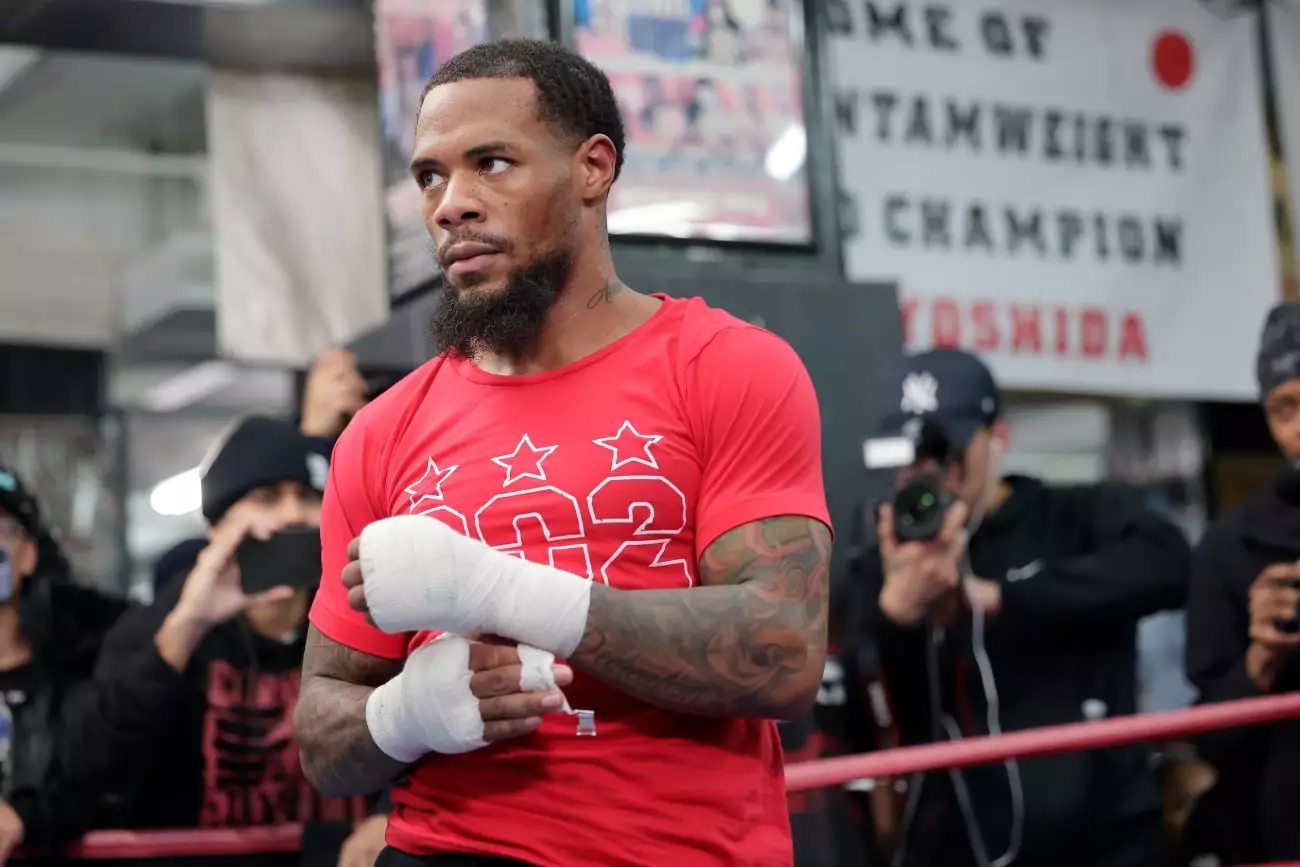In the world of boxing, fighting for a title often feels like the embodiment of a classic battle, engaged not just in the ring but within the psyche of the fighters. Lamont Roach, a formidable contender, likens his transformation during a match to that of a scientist turning into the Incredible Hulk. As he prepares to challenge Gervonta Davis for the WBA lightweight title on March 1st, at the Barclays Center in Brooklyn, fans and analysts alike are eager to see whether Roach can channel this inner metamorphosis to secure victory.
Roach’s self-comparison to a scientist is intriguing and signals a deeper understanding of the sport. He elaborates on how his fight strategy evolves, akin to a research experiment where variables are controlled and outcomes predicted. “I’m close to a scientist in there,” he articulates, emphasizing his meticulous approach to training and strategy. This methodical mindset could be crucial as he prepares to face Davis, a fighter known for his raw power and knockout ability.
Working on his speed and strength in preparation for moving up from 130 to 135 pounds is strategic. By shifting weight classes, Roach aims not just to match Davis physically but to exploit what he perceives as gaps in Davis’s overall game. The potential increase in power coming from this weight class jump signals Roach’s intention to capitalize on any opportunities that arise. His preparation showcases a blend of scientific analysis and physical execution, which might give him an edge.
Roach’s insights into Gervonta Davis bring an additional layer to their matchup. Notably, Roach observes that Davis often finds himself on the back foot early in fights, relying on his knockout power to come from behind. Roach intends to exploit this tendency, emphasizing the importance of building a lead in the early rounds. He understands that Davis’s ability to turn up the heat as the rounds progress could pose a serious threat if he doesn’t establish dominance first.
What makes this fight even more captivating is the absence of Calvin Ford, Davis’s longtime trainer. Roach notes, “It’s a little weird” for an established fighter like Davis to be without his key strategist. This could potentially disrupt Davis’s rhythm and game plan. Roach’s awareness of the psychological factors at play—both in terms of his own readiness and the uncertainty surrounding Davis—plays into his strategy for the night.
Darling of the odds in many matchups, Roach is choosing to embrace the role of the underdog, which can be a powerful motivator. He acknowledges the pressure on him, expressing confidence that, despite being overlooked, he can pivot the tables to his advantage. “The tables will turn, I’ll tell you that,” he asserts, showing an understanding of boxing’s unpredictable nature.
Roach is arguably more than just an underdog; he is a well-prepared combatant with a plan. His experiences lead him to approach this fight with composure, ready to let his skill set do the talking. Unlike fighters who might crack under the pressure of being the lesser-favored competitor, Roach seems to thrive. His mental fortitude is as crucial as his physical preparation and tactical execution.
Returning to the analogy of Hulk and Bruce Banner, the real question becomes whether Lamont Roach can indeed transform into a powerhouse that can contend with Gervonta Davis’s raw talent and aggression. If Roach can channel this duality effectively, the fight might take an unexpected turn. The psychological shift from scientist to a formidable force is a phenomenon that could overwhelm Davis and upend the established hierarchy in the lightweight division.
As the fight date approaches, Roach prepares not just for a bout, but for a pivotal moment in his career. With every punch thrown and strategy executed, he embodies the complexity of a fighter who is both cerebral and instinctive. Fans are left waiting, eager to witness whether Roach can truly turn into ‘The Hulk’ when the bell rings, for it is in that transformation that victories are born in the world of boxing.

